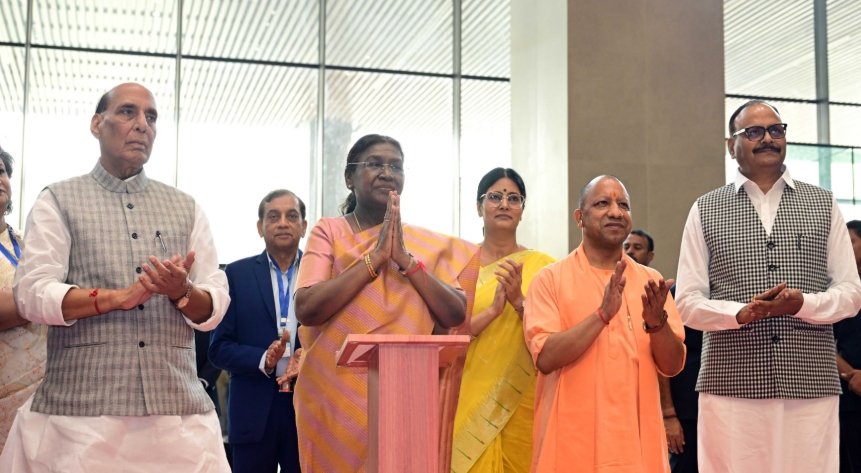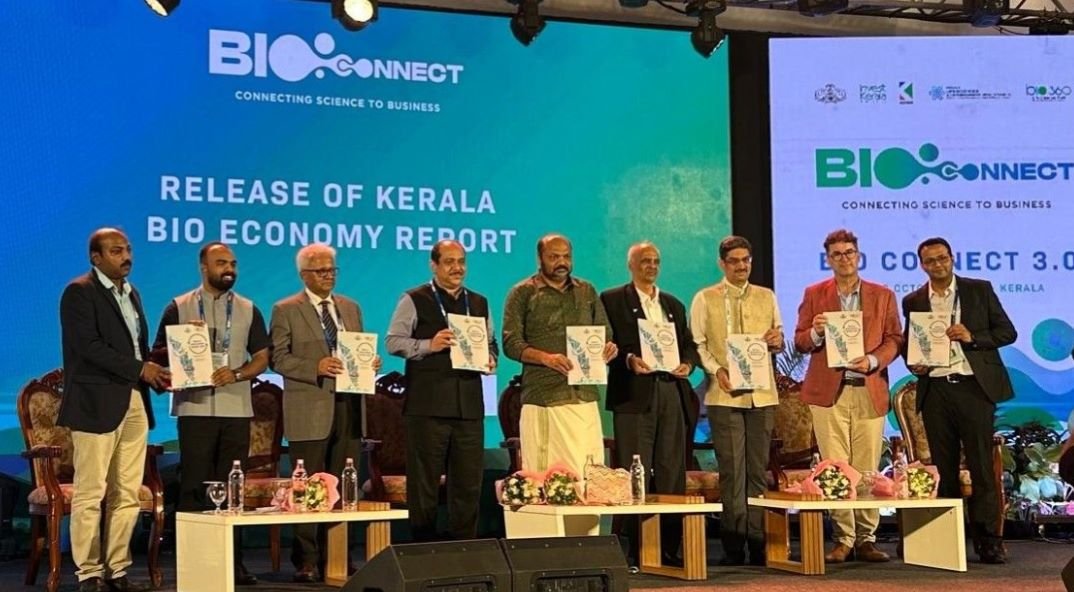Budget 2015: "Agribiotech sector expects more incentives in research"
February 21, 2015 | Saturday | Interviews | By Rahul Koul Koul
Budget 2015: Agribiotech sector expects more incentives in research
Mr Ram Kaundinya, chairman, ABLE-AG
In an interview with BioSpectrum's Rahul Koul, Mr Ram Kaundinya, chairman, ABLE-AG gave detailed responses to specific questions on the upcoming budget expectations. Read on for details:
Q: Which are the key points that the previous budgets have failed to cover and need to be given attention now?
There were lot of initiatives announced for the agri sector such as establishment of mobile soil testing laboratories, agricultural research institute, National Adaptation Fund for climate change and a Price Stabilization Fund among others that will benefit the agri-biotech sector. The statement about ushering in a second green revolution was very positively received by the entire ecosystem of farmers, scientists, research-organisations, agri-universities and seed companies that together contribute to the sector as it will boost R&D in agri-biotech sector and open up a host of associated opportunities. However, policy makers need to understand that budgetary allocation by itself is not enough - the regulatory ecosystem must be improved and strengthened to allow the scientific community to go the last mile and create new strains of agri-biotechnology crops that sustainably address the issue of food security and farmer incomes. To sum this up, I would say that the Indian agri biotech sector needs more incentives for investment in research and for biotech seed production in India.
Q: Do you expect it to be different from ones presented earlier?
I believe the government recognizes this and also believe that its 'Make-In-India' mission integrates well with the priorities of the Indian biotechnology sector. The Indian agri biotech industry has clearly demonstrated through Bt cotton that technology helps in making the 'Make in India' campaign stronger. Bt cotton seeds are today produced in India and helping Indian farmers generate high incomes and also enabling rural employment. Additionally many countries are looking forward to invest in the Indian biotechnology sector. However, regulatory hurdles especially in the agri-biotech sector remains an issue that needs urgent redressal. The inability or reluctance to address these regulatory hurdles will not just undo the benefits accrued by India's farmers so far but also prevent India reaping the benefits of an ever-green revolution in agriculture. The PM's interim budget, where the finance minister announced a very modest increase in financial outlay for the agri-biotechnology sector needs to be re-looked at. There needs to be more stimulus provided to the agri-biotech industry to enable more productive and long-term gains for the sector.
Q: How do you look at the recent speech of PM Modi at Indian Science Congress where he advised the industry to increase its own investments to research?
I do believe that the Prime Minister's address at the Science Congress held earlier this month was a landmark one. While lauding Indian scientists for their contribution in the fields of space technology, agriculture and biotechnology, he laid down priorities for research in the fields of clean energy, agriculture, biotechnology, agriculture and health care. As a representative of the biotechnology industry, we found his emphasis on the biotechnology industry very encouraging, especially in light of it shared as a national priority and an important enabler to nation building. The Prime Minister also spoke of international collaboration in science and highlighted how he was personally involved in developing them. He also hinted, in generous terms, of what he intended to do for Indian science. Many scientists now sense a real opportunity to communicate what they want to the prime minister, and expect quick measures from him to invigorate research in India.
For us in the agri-biotech sector his emphasis on creating an enabling ecosystem that ensured an 'ease of doing research' was particularly welcome. The agri-biotechnology domain has come to face huge regulatory challenges despite its potential to address many of the challeges that India faces - that of enhancing farmer incomes as well as address the important mandate of food security. For agri-universities, scientists and seed companies, the issue is not merely of increasing investments but of being allowed to carry on research in an unhindered and unencumbered manner. We therefore sincerely hope that the Prime Minister's thoughts resonate deeply with and find favour with other policy-makers, both in his government and in the opposition and results in a more conducive ecosystem for the agri-biotech industry.
Q: What are the opportunities in Indian biotech industry that have remained untapped over the period of time?
The biotechnology sector of India is highly innovative and is on a high growth trajectory. The sector, with its immense growth potential, will continue to play a more significant role as an innovative manufacturing hub. The sector is one of the most significant sectors in enhancing India's global profile as well as contributing to the growth of the economy. This sector is directly or indirectly related to the health as well as the agricultural sector of India. India had recently overtaken Canada to emerge as the fourth largest country to grow biotech or genetically modified (GM) crops, as farmers here planted Bt cotton in about 11 million hectares. The global acreages under GM crops increased to 175.2 million hectares in 2013, about five million hectares more than the previous year. With the country offering numerous comparative advantages in terms of research and development (R&D) facilities, knowledge, skills, and cost effectiveness, the biotechnology industry in India has immense potential to emerge as a global key player.








